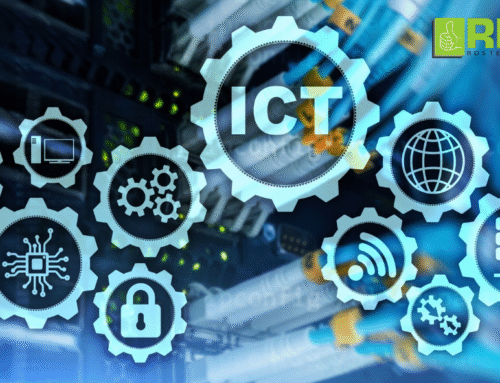Understanding The Importance Of Data Security
In today’s digital age, understanding the importance of data security is crucial for both individuals and businesses. As we increasingly rely on electronic communication, cloud storage, and digital transactions, the risk of data breaches, identity theft, and cyberattacks has escalated dramatically. Data security involves protective digital privacy measures applied to prevent unauthorized access to computers, databases, and websites, safeguarding personal or business information from corruption or theft.
For individuals, personal data such as social security numbers, credit card information, and personal communications can be targeted by cybercriminals for identity theft or financial fraud. Such breaches can lead to significant personal and financial consequences, underscoring the importance of securing one’s digital environment. For businesses, data breaches can be devastating, resulting in severe financial losses, damage to reputation, and loss of customer trust.
Intellectual property, proprietary information, and customer data are prime targets, and their compromise can have far-reaching effects on a company’s competitive advantage and financial health. Regulatory compliance regarding data security has also become more stringent, with laws such as the General Data Protection Regulation (GDPR) imposing hefty penalties for non-compliance. Thus, investing in robust data security measures is not just a protective action but a proactive strategy to ensure the longevity and integrity of both personal and business endeavors in a digital world.
Implementing Strong Password Policies
Implementing strong password policies is a critical component of data security measures for individuals and businesses alike. Passwords serve as the first line of defense against unauthorized access to sensitive information, making their strength and management crucial. Individuals and organizations should ensure that passwords are complex, combining uppercase and lowercase letters, numbers, and special characters. A recommended practice is to create passwords that are at least twelve to sixteen characters long, minimizing the risk of brute force attacks.
Avoiding dictionary words and common phrases is essential, as these can be easily guessed or cracked using automated tools.
For businesses, enforcing regular password updates and avoiding password reuse across different accounts is vital. Implementing policies that require employees to change their passwords every few months can limit exposure to potential threats. Additionally, password managers are encouraged to store and generate complex passwords, reducing the cognitive load on users while maintaining security standards. Incorporating multi-factor authentication adds another layer of protection, ensuring that even if a password is compromised, unauthorized access is still challenged.
Employee education on recognizing phishing attempts and social engineering attacks further strengthens password security. By cultivating an awareness of the latest threats and best practices, both individuals and organizations can maintain a robust defense against cyberattacks and data breaches, safeguarding their personal and professional assets.
Utilizing Two-Factor Authentication
Utilizing two-factor authentication (2FA) is a fundamental step in enhancing data security for both individuals and businesses. This security measure acts as an additional layer of defense beyond the traditional password system, significantly reducing the risk of unauthorized access. With 2FA, users are required to provide two forms of identification before gaining access to an account or system. Typically, this involves entering a password and then verifying identity via a secondary method, such as a text message with a unique code, a biometric scan, or an authentication app.
The use of 2FA is crucial in protecting sensitive information from hackers who may have obtained a user’s password through phishing scams or data breaches. By requiring a second form of authentication that only the legitimate user possesses, 2FA reduces the likelihood of data breaches. For businesses, implementing 2FA can help comply with regulatory standards and build customer trust by demonstrating a commitment to security.
For individuals, it provides peace of mind and an added layer of security for personal accounts.
Despite its effectiveness, some users may find the process inconvenient. However, the trade-off between convenience and security is generally worth it. As cyber threats continue to evolve, leveraging 2FA is a proactive strategy for safeguarding sensitive information and maintaining robust data security.
Protecting Data With Encryption
Protecting data with encryption is a fundamental strategy for safeguarding sensitive information for both individuals and businesses. Encryption transforms readable data into an unreadable format, ensuring that only authorized parties can access it using a decryption key. This process secures information in transit and at rest, safeguarding against unauthorized access and data breaches. For individuals, using encryption on personal devices like smartphones, laptops, and tablets is crucial, especially when storing confidential information such as financial data or personal communications.
Many modern devices come with built-in encryption features that users can easily activate, adding an essential layer of security.
For businesses, the stakes are higher, as an organization’s data often includes sensitive customer information, intellectual property, and financial records. Implementing encryption protocols across an enterprise network is critical. This includes encrypting emails, databases, and backup systems to shield them from cyberattacks. Furthermore, businesses should enforce strong encryption standards and continuously update them to combat evolving threats. Utilizing end-to-end encryption for communications ensures that messages remain secure during transit.
Additionally, encrypting data stored in the cloud is essential, given the increasing reliance on cloud services. Whether for a small business or a large corporation, creating a robust encryption policy, educating employees about its importance, and regularly auditing the encryption standards can significantly enhance data security and privacy.
Regular Security Software Updates And Patches
Regular security software updates and patches are fundamental to maintaining a robust defense against evolving cyber threats for both individuals and businesses. Software developers consistently scrutinize their products for vulnerabilities, as cybercriminals are perpetually searching for weaknesses to exploit. When a vulnerability is identified, developers release patches to fix these security gaps, ensuring that the software remains secure against known threats.
Failing to install updates promptly can leave systems exposed, making them susceptible to malware, ransomware, and other cyberattacks.
For individuals, applying these updates might seem like a minor inconvenience, but it is a crucial step in safeguarding personal data. Outdated software is an easy target for hackers, who can exploit these vulnerabilities to gain unauthorized access to personal information such as passwords, banking details, and other sensitive data. Regularly updating all software, including operating systems, applications, and antivirus programs, can significantly reduce the risk of cyber intrusions.
Businesses, on the other hand, face greater risks if they neglect security updates. The stakes are higher due to the volume of sensitive data they manage and the potential financial and reputational damage that a data breach can cause. Establishing a routine process for deploying software updates and patches across all company systems is essential. By prioritizing these updates, businesses can protect their assets, maintain customer trust, and comply with regulatory requirements on data security.
Developing A Comprehensive Data Backup Strategy
Developing a comprehensive data backup strategy is a vital component of effective data security for both individuals and businesses. In today’s digital age, the loss of data due to hardware failures, cyberattacks, or natural disasters can have devastating consequences. To mitigate these risks, it’s essential to establish a robust backup plan that ensures data availability and integrity at all times. The first step in creating a backup strategy is to identify critical data that needs protection.
For businesses, this typically includes customer information, financial records, and proprietary intellectual property, while individuals may prioritize personal documents, photos, and important communications. Once key data has been identified, it’s crucial to select an appropriate backup method that aligns with specific needs and resources. Options include traditional local backups, such as external hard drives, as well as modern cloud-based solutions that offer scalability and remote access.
Balancing on-site and off-site backups provides an additional layer of protection, reducing the risk of data loss from localized incidents. Regularly scheduled backups are necessary to maintain up-to-date data copies, and automation tools can streamline and enhance this process. Furthermore, testing backup integrity through routine restoration drills ensures the reliability and recoverability of data. By implementing a well-structured and regularly evaluated backup strategy, individuals and businesses can safeguard their valuable data against the unexpected.
Secure data starts with getting cloud storage solutions from a reliable IT solutions provider. RDS is one of the leading technology solutions service companies in Miami. Call (888) 242-4242 or send us an email for more information today.

















